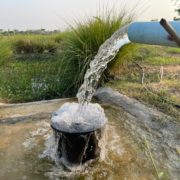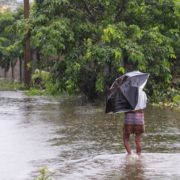Archive | Environment RSS feed for this section
Environment, Gender
 Climate change, Environment, Water
Climate change, Environment, Water
 Energy, Environment, Finance sector development
Energy, Environment, Finance sector development
 Environment, Governance and public sector management
Environment, Governance and public sector management
 Environment, Health, Water
Environment, Health, Water
 Environment, Finance sector development
Environment, Finance sector development
 Agriculture and natural resources, Climate change, Environment
Agriculture and natural resources, Climate change, Environment
 Climate change, Environment, Water
Climate change, Environment, Water
 Climate change, Environment, Governance and public sector management
Climate change, Environment, Governance and public sector management
 Climate change, Environment, Poverty, Social development and protection
Climate change, Environment, Poverty, Social development and protection

Gender equality at the heart of climate resilience

The journey toward achieving the Sustainable Development Goals hinges upon a gender-inclusive perspective.
Blue economy solutions exist and it is time for action

Oceans face immense pressures from human activities as we prioritize immediate results at the expense of long-term progress.
Asia’s clean energy investment needs and the role of blended finance

Expanding the scale of blended finance in clean energy will require innovative efforts from the international community to reform traditional development finance approaches.
Classifying garbage for improving well-being in rural People’s Republic of China

The mismanagement of domestic waste in rural areas places stress on the environment and compromises people's quality of life.
Maximizing the value of water to end water scarcity in Asia

Water scarcity is a global issue that affects 40% of the world’s population
Central bank initiatives essential for developing effective sustainable finance markets

As many countries have begun to take greater climate action, central banks and financial regulators must also make greater efforts to foster more effective sustainable financial markets.
Integrated solutions to rangeland degradation in Mongolia

The Mongolian rangelands are sensitive to climate change and variability, and their degradation has been alarming.
The “invisible” water crisis: Groundwater sustainability in Asia and the Pacific

Groundwater overexploitation has raised concerns about resource sustainability and environmental degradation.
Ocean governance and blue finance for revitalizing the blue economy

The impacts of climate change, marine pollution, unsustainable fishing, and rapid, unsustainable coastal development are threatening ocean ecosystems and jeopardizing small island nations and other developing coastal economies.
Protecting victims of climate-induced migration and displacement in South Asia

South Asia is home to a quarter of the world’s population and is extremely susceptible to climate change-induced displacement and migration.


Search
Subscribe / Connect to Asia Pathways
Subjects
- Agriculture and natural resources
- Blog
- Capacity development
- Climate change
- Economics
- Education
- Energy
- Environment
- Finance sector development
- Gender
- Governance and public sector management
- Health
- Industry and trade
- Information and Communications Technology
- Infrastructure
- Miscellaneous
- Population
- Poverty
- Private sector development
- Regional cooperation and integration
- Sanitation
- Social development and protection
- Transport
- Uncategorized
- Urban development
- Video Blog
- Water
Recent Posts
- Transforming ASEAN: Advancing Regional Integration, Social Inclusion, and Environmental Sustainability
- Development of the Creative Economy in Asia and the Pacific
- Kashima City’s Great Transformation: Where Industry Meets Community
- Mechanization Driving the Future of Agriculture in Asia
- Natural Capital: Valuing Nature to Protect and Restore Ecosystem Services for Sustainable Development




Recent Comments